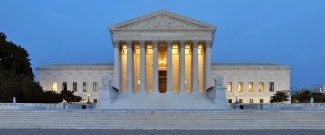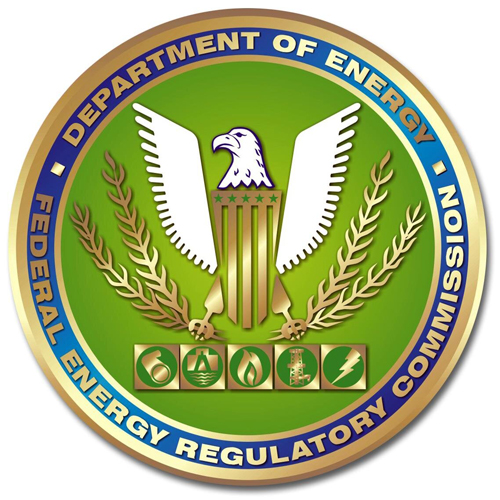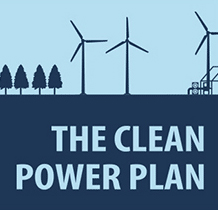
It’s been a monumental year for energy law at the U.S. Supreme Court. With two recent Federal Energy Regulatory Commission (FERC) decisions, the Court has told us more about important jurisdictional questions than it has in over a decade.
Power Points’ Gary Radloff sat down with Miriam Seifter, assistant professor in the University of Wisconsin Law School, to talk about these big decisions, and what we can expect to see as a result.
Power Points: What was the biggest thing to come out of the recent FERC decisions?
Seifter: There were two FERC decisions, Electric Power Supply Association (EPSA) and Hughes.
EPSA, the more significant case both doctrinally and practically, upheld FERC's promotion and regulation of wholesale demand response, i.e., various programs that reward consumers for promises to limit their electricity usage at certain times.
Demand response has become an important regulatory tool, heralded for keeping costs down, avoiding grid failures, and offering potential environmental benefits. In upholding FERC's order (Order 745, which promotes and regulates wholesale demand response), the Court clarified some important doctrinal issues. Namely, it appears to mark a new era in the division of authority between federal and state regulators.
Traditionally—since the Federal Power Act was enacted in 1935—the Supreme Court has referred to this division as a “bright line”: essentially, the federal government regulates wholesale sales and transmission of electricity, and the states regulate retail and other intrastate matters. But a bright line is increasingly unworkable in the modern grid. The bright-line framework has been ripe for change, and its instability finally reached the Supreme Court.
The EPSA decision indicates that FERC has broad authority to regulate practices that affect wholesale markets, even if the federal regulation (like with demand response) also affects retail markets. At the same time, EPSA recognizes that states have some shared authority over demand response practices. In a sense, EPSA seems to usher in a new framework -- call it functionalist, pragmatic, or flexible -- where state and federal regulators no longer have exclusive domains, but instead have overlapping ones.
One more point about EPSA: From a practical perspective, it gives FERC a lot of room to maneuver when it develops programs to achieve its various policy goals. Joel Eisen, a professor at University of Richmond described the decision as "open[ing] up a vast new frontier for FERC to innovate and pursue broad policy goals.”
Power Points: Does this indicate FERC might be reaching for broader authority? Will this require some U.S. Congressional policy clarification?
Seifter: As for whether FERC is reaching for broader authority, yes and no. Surely FERC is trying to regulate matters like demand response that were outside the traditional federal paradigm. But at the same time, FERC has been essentially policing itself, trying to draw practical limits on its own jurisdiction -- for example, by allowing states to opt out from wholesale demand response, and by indicating that it's not going to regulate net metering.
Congressional clarification is, in a sense, the gold standard when it comes to resolving disputes about agency authority. Agencies are creatures of Congress, and the Court is trying to divine congressional intent when it patrols agencies' boundaries. So yes, if Congress were to intervene to clarify, that would be useful. But in the present era of gridlock, that seems unlikely to occur.
Power Points: Also related, what does this mean for consumers of energy, like you and me? Does this mean there will be more flexibility when it comes to how much control we have over our energy bills?
Seifter: I should leave the details of your question to policy experts like Gary, but to the extent that demand response is viewed as good for reducing consumer rates, EPSA is a victory for consumers.
On the Hughes (FERC) Decision

Power Points: Could you give us a quick take-home of Hughes, the second “big” FERC case?
Seifter: Hughes involves Maryland’s attempt to increase construction of new power plants within its borders by offering a premium over the federal price (that is, the market clearing price in federally supervised capacity markets). The Supreme Court rejected Maryland’s attempt, essentially because it was an outright revision of the wholesale rate. But the Court was at pains to say its decision was narrow, leaving room for other attempts to “encourage development of new or clean generation,” presumably ones that do not blatantly link compensation to the federal capacity auction (tax credits? subsidies? other creative regulation?). A lot of uncertainty remains, because the Court does not delineate what will be permissible going forward.
Power Points: So it depends on whether there is a link between those attempts and the wholesale rate?
Seifter: A key question is whether the state effort comes too close to revising/changing the wholesale rate. The Court will be looking at the impact on the wholesale rate as well as (per a case from the previous Term called Oneok) whether the state effort was "aimed" at the federal rate.
Power Points: So we can imagine that down the line, a state could create an incentive based on a differently organized rate structure, and it could potentially pass the test, if it were creative enough in how it devised those incentives.
Seifter: That’s a fair reading of what the Court said. We’ll have to see how it plays out in practice.
On the Future of the Clean Power Plan

Power Points: On to the Clean Power Plan. The Clean Power Plan is back in the hands of the circuit courts. Do you have any thoughts on what will happen there, or is it too early to guess?
Seifter: It's going to be argued in September. The DC Circuit decided, sua sponte, to hear the case en banc -- that is, by all of the judges rather than the usual three-judge panel. That probably signals that the court believes the case is quite important. I don't have a prediction of how the case will come out; like you, I’ll be watching with great interest.

